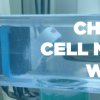Understanding Chlorinator Cell Plate Material
Welcome to the Chlorinator Cells blog, where we discuss everything related to chlorinator cell technology. In this post, we will explore the importance of the chlorinator cell plate material and its impact on the performance and longevity of your chlorinator cell.
What is a Chlorinator Cell Plate?
A chlorinator cell plate is a critical component of a saltwater chlorinator. It consists of a series of metal plates or electrodes that are responsible for the electrolysis process, which converts salt into chlorine. The chlorinator cell plate material plays a crucial role in this process, as it directly affects the efficiency and durability of the chlorinator cell.
The Role of Chlorinator Cell Plate Material
The choice of material for the chlorinator cell plate is essential due to its contact with the corrosive environment of saltwater and the electrical current passing through it. The most commonly used materials for chlorinator cell plates include titanium, ruthenium-coated titanium, and various types of mixed metal oxide coatings.
Titanium is a popular choice for chlorinator cell plates due to its exceptional corrosion resistance, high strength, and biocompatibility. It can withstand the harsh conditions of saltwater and does not react with chlorine, ensuring long-lasting performance. Ruthenium-coated titanium further enhances the durability and efficiency of the chlorinator cell by providing an additional protective layer.
Mixed metal oxide coatings, such as iridium oxide or ruthenium oxide, offer superior conductivity and extend the lifespan of the chlorinator cell. These coatings enhance the performance and reduce energy consumption, making them a preferred choice for some chlorinator manufacturers.
Choosing the Right Plate Material
When selecting a chlorinator cell plate, it’s crucial to consider the specific requirements of your chlorinator system and the water conditions it will be exposed to. Here are some factors to consider:
- Corrosion Resistance: Look for materials with high corrosion resistance to ensure longevity.
- Efficiency: Consider materials that offer excellent electrical conductivity for optimal chlorine production.
- Durability: Choose materials that can withstand the demanding conditions of saltwater environments.
- Compatibility: Ensure the chosen material is compatible with your chlorinator system and other components.
Wrapping Up
The chlorinator cell plate material is a critical aspect of your saltwater chlorinator system. Choosing the right material can significantly impact the performance, efficiency, and longevity of your chlorinator cell. Titanium, ruthenium-coated titanium, and mixed metal oxide coatings are commonly used materials that offer excellent corrosion resistance and durability. By considering the specific requirements of your chlorinator system, you can make an informed decision and ensure optimal performance.

 07 3485 0008
07 3485 0008







Leave a reply